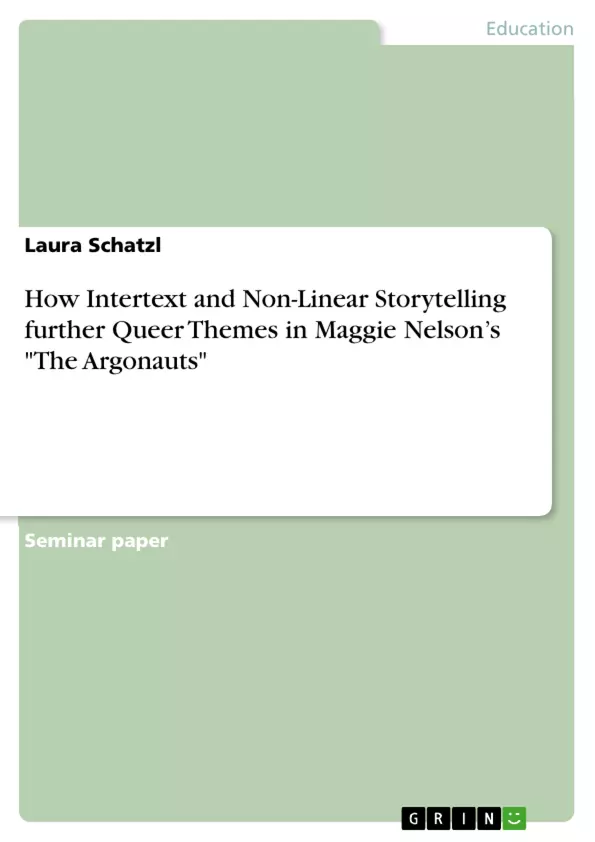This paper explores how Maggie Nelson’s "The Argonauts" employs intertextuality and non-linear storytelling to deepen and embody queer themes. Drawing on queer narrative theory and the concept of autotheory, the study examines how Nelson’s disruption of linear chronology and her incorporation of diverse textual references challenge normative structures of identity, temporality, and narrative coherence. By eschewing traditional narrative closure and embracing fluidity, Nelson reflects the multiplicity and evolving nature of queer experience. Her use of intertext—particularly references to queer theorists, writers, and artists—not only situates her personal narrative within a broader cultural and intellectual context but also constructs a dialogic, relational mode of storytelling. This approach not only validates individual queer experiences but also creates space for collective reflection and identification. Ultimately, the paper argues that Nelson’s formal innovations are not mere stylistic choices but are fundamental to articulating and enacting queerness in literature.
- Arbeit zitieren
- Laura Schatzl (Autor:in), 2024, How Intertext and Non-Linear Storytelling further Queer Themes in Maggie Nelson’s "The Argonauts", München, GRIN Verlag, https://www.hausarbeiten.de/document/1593611


